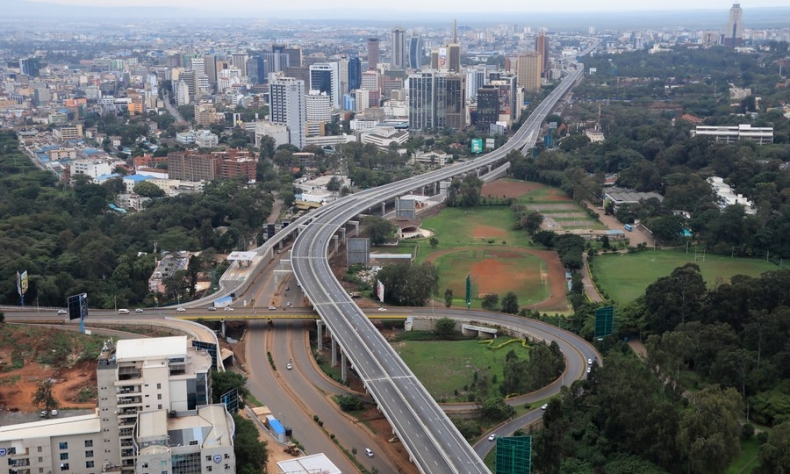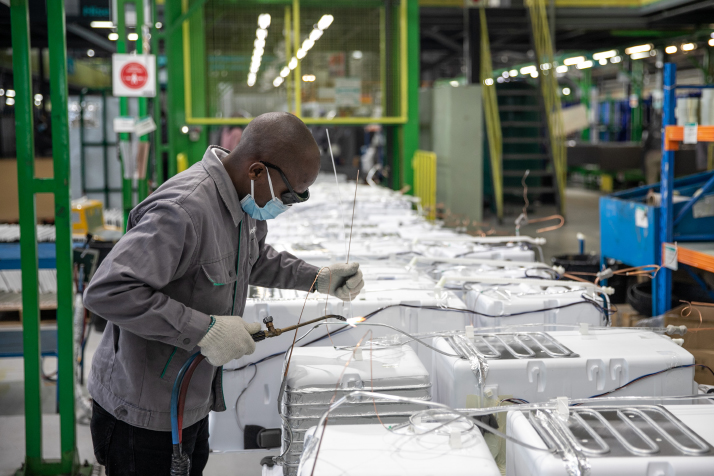Insights for Africa’s Industrialisation

China’s development experience and lessons can be of great benefit to Africa’s modernisation drive.
The First Industrial Revolution in the 18th century started the modernisation process marked by profound economic, social, and cultural transformations in the world. Research shows that the process of industrialisation is closely associated with improvements in people’s living standards and their quality of life. Industrialisation, with economic and technological change at its core, is central to modernisation.
On its path to modernisation, China has pursued industrialisation and managed to become the world’s largest manufacturer since 2010. From 1990 to 2022, China’s share of manufacturing value added in GDP increased from 15.7 percent to 28.3 percent. Industrialisation is the foundation for improving the well-being of the country’s 1.4 billion people. China’s human development index increased from 0.41 in 1978 to 0.77 in 2021.
Africa is home to the largest number of developing countries and the youngest population in the world. For decades, many African countries have been striving for industrialisation, which is expected to bring economic growth, create jobs and generate better income. The African Union has called for action on industrialising Africa’s economy in Agenda 2063: The Africa We Want.
Responding to Africa’s aspiration, China launched the Initiative on Supporting Africa’s Industrialisation during the China-Africa Leaders’ Dialogue in South Africa on 24 August 2023. The initiative not only proposes practical support to Africa’s industrialisation, but also opens up more avenues for cooperation between the two sides. The following aspects of China’s industrialisation experience could be particularly relevant for Africa’s development.
Chinese strategy
China has stayed focused on agricultural development. The country has encouraged the adoption of modern agricultural machinery and technology in agricultural production, and continuously improved the organisation of production and marketing of agricultural produce. The increase in productivity ensures sufficient food supply while releasing surplus labour from the agricultural sector. Migrant workers could move to places where fast development of manufacturing and service industries creates new job opportunities.
China has developed industrial clusters in cities and regions, taking advantage of their respective geographical, economic and social endowments, and managed to build connections with global markets for trade, integrate into global production networks, and benefit from the inflows of capital, talents and technology. With its proximity to Hong Kong, Shenzhen in south China’s Guangdong Province was designated the first special economic zone in China. In four decades, the former fishing village has developed hi-tech industries and their supply chains, as well as service industries in logistics and finance. It has become a modern metropolis for global innovation.

The Chinese central government has been committed to creating an environment of security, stability and rule of law. It also encourages local governments, through policy experiments and performance evaluation, to explore feasible development approaches suited to local conditions. Local governments have been proactive in improving infrastructure conducive for business development, establishing industrial parks to create economies of scale and scope, and continuously enhancing administrative capabilities to facilitate the ease of doing business.
And finally, China has invested in adopting digital technologies to upgrade traditional industries and develop new industries. For example, e-commerce platforms have not only reduced the asymmetry of supply and demand between urban and rural areas, but also created new job opportunities in data analysis, online promotion, package delivery and customer service to absorb migrant workers as well as fresh graduates.
Next steps
Moving forward, China and Africa can enhance cooperation and coordination on industrialisation in a number of ways.
China and African countries can work together to enhance agricultural modernisation to build a solid foundation for industrialisation, staying focused on agricultural development and developing its linkages with industrialisation. China can help Africa to apply advanced agricultural technologies as well as modernise agricultural production to enhance productivity and ensure food security.
Secondly, they can work together to develop industrial parks and special economic zones in locations with suitable conditions. Manufacturing industries need to be chosen on the basis of local endowment as well as potential to create jobs for migrant workers and local residents. To sustain industrialisation, it is important to build and upgrade infrastructure facilities, establish linkages to global markets and production networks, and create vertical coordination between upstream and downstream businesses.
Digital technology is another area full of cooperation potential. China and African countries could work together to accelerate the adoption of digital technologies to upgrade traditional industries, develop new industries, and build new infrastructure for industrialisation. They can jointly promote digitisation of government services and develop e-commerce, digital payment, distance education and smart transportation to create job opportunities, enhance business efficiency and improve the quality of life for residents.
Knowledge sharing and mutual learning should be expanded. Knowledge networks on development between China and Africa, involving governments, think tanks, universities, enterprises and social organisations, should be strengthened to share best practices and enhance mutual understanding. University and vocational education in Africa should be improved to build skills and capabilities for industrialisation. In this respect, China’s Luban Workshop established in nearly a dozen African countries has nurtured many local talents working for industrial projects in their respective countries.
The authors are Senior Research Fellow and Vice President of Centre for International Knowledge on Development, Beijing and Associate Research Fellow of Centre for International Knowledge on Development, Beijing.
 Facebook
Facebook
 Twitter
Twitter
 Linkedin
Linkedin
 Google +
Google +










